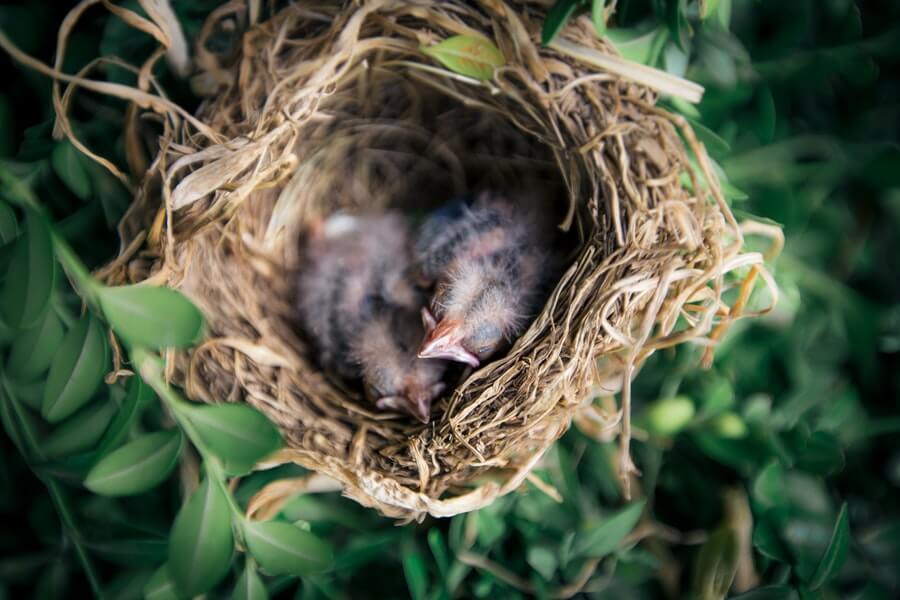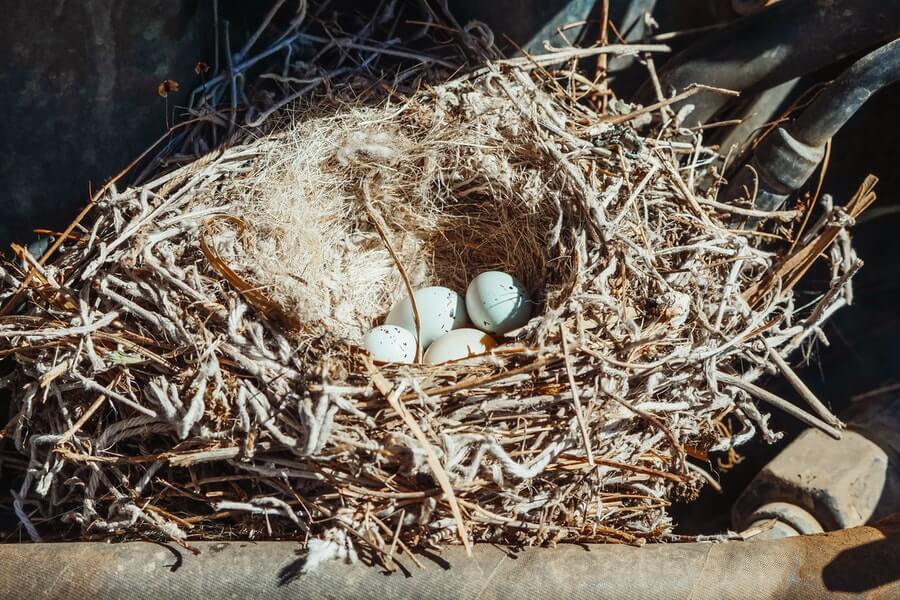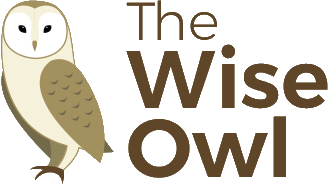Spring is a beautiful time of the year. It’s a period where we can shrug off the darkness of winter and embrace the beginning of longer days, blossoming flowers and the re-emergence of some of our favourite wildlife. However, spring also marks the official beginning of bird nesting season here in the UK.
Since our native bird species have declined by 11% since 1970[i], nesting season has never been more critical to the conservation of birds than it is now. But when exactly is bird nesting season? And what can we do to help birds during this period? Here’s everything you need to know.
What Is a Nesting Season?
A nesting season is when birds build nests to lay eggs and, in most cases, raise their young in. But, of course, birds aren’t the only animals who have nesting seasons. Other species with nesting seasons include turtles, crocodiles, ants, wasps, squirrels and hedgehogs.
When Is Nesting Season For Birds?
Officially, the bird nesting season in the UK is February – August. However, it has been known to begin earlier and finish later since the dates vary depending on the species. Usually, though, the busiest period for nesting birds, in general, is the 1st of March – 31st July[ii].
Although we have outlined the official dates of the UK bird nesting season, there have been several anomalies. For example, the blackbird nesting season has been recorded as starting as early as January. However, this is believed to be young breeding pairs learning when it is sensible to breed[iii]. Some other early nesters include:
- Long Tailed Tit
- Goldfinch
- Blue Tit
- Robin
- Great Tit
- Thrush
- Chaffinch
- Coal Tit
- Greenfinch
- Goldfinch
The Laws On Nesting Birds

Under the Wildlife and Countryside Act 1981, bird nests and eggs are protected. This law states that you can’t intentionally take, damage or destroy the nest of any wild bird while it is being built or used. It also declares that you can’t intentionally disturb any wild bird listed on Schedule One while it is nest building or using a nest.
It’s essential that anyone interested in the bird nesting season or with an unwanted bird nesting on their property is aware of this law as you don’t want to meet with the consequences of breaking it, which are an unlimited fine, up to six months imprisonment or both.
How To Help During the Bird Nesting Season
Since more areas have become urbanised, it can be challenging for birds to find safe places to build their nests and suitable materials with which to make them. Luckily, there are several ways we can all help birds during their nesting season. To administer a range of species through this year’s bird nesting season, you could:
- Avoid cutting your hedges during nesting season
- Plant late flowering plants that will attract birds
- Leave fallen leaves and twigs on the ground
- Hang bird feeders away from shrubs
- Keep your pet cats indoors where possible
- Leave out dried eggshells to provide female birds with extra calcium
- Let your garden grow
- Leave any nests you may find alone
How To Encourage Birds To Nest In Your Garden

Waking up to the sound of bird song is a dreamy way to start the day! Optimising your garden for the bird nesting season will provide them with a safe space to lay and allow you to catch regular sightings of your new feathered friends without disturbing them. Here are the best things you can do to encourage birds into your garden.
1) Provide Food
Although birds will be hunting for insects to feed their young, baby birds will also eat seeds and fruit. By providing a regular source of these foods, breeding pairs are more likely to return to your garden and hopefully even nest in. The best foods to provide will nurture the parents and their young, so opt for things like seasonal seed mixes, soft fruits, and nuts. It’s best to put these foods on a bird table or in bird feeding stations to stop predators approaching the birds and their food source. Keep your feeders clean and fill them up at least once a day.
You should never feed a baby bird by hand. Baby birds can last about 24 hours without food[vii], and if you provide a regular food source, it’s guaranteed that the babies will get fed. Not only could your hand feeding them cause them to choke, but it could alter their behaviour, making them reliant on humans rather than their parents. Also, hand-feeding birds may spread diseases.
View our range of wild bird seed mixes.
2) Leave Out Water
A baby bird’s lungs are too small to drink water[ix]; however, a continuous water supply is vital to a nesting family. The parents will need to preen their feathers, drink and wash regularly, and you should provide fresh water to allow nesting birds to do so in your garden.
Birds will be much more likely to approach a raised water source that will enable them to see any approaching predators, so go for an elevated birdbath to entice them. You should change the water every day or two and give your birdbath a thorough clean a couple of times a year.
3) Add A Nesting Box
Provide bird boxes to give breeding pairs a safe, secure place to stay. Not only will this protect the birds, but it may also mean that you get to bear witness to their young in their first few months of life – many a bird watcher’s dream!
You can get bird nesting boxes to suit many species of bird, however the requirements for the placement of the box are different for each species, so ensure that you know where to put your box to attract the right kind of birds before putting it up. As a general rule of thumb, you should put a bird box in a shady spot (usually facing between north and east to avoid strong sunlight and adverse weather) with a cleared flight path and easy entrance.
4) Provide Shelter
Although a bird box gives a safe place to stay and nest, birds are more likely to settle in areas with plenty of shade and cover from predators. This cover allows safe passage while birds look for food and nesting materials, so try and provide some shelter for birds to hide out in. Climbing plants, shrubs, trees and hedges are all perfect hiding spots for birds and will give them plenty of cover to move more freely around your garden.
5) Leave Out Nesting Materials
Birds are picky about where they nest, so if nesting boxes aren’t working, you may have more luck with providing nesting materials for birds to easily pick up. There are several materials that birds have been known to use when building their nests, including:
- Twigs
- Leaves
- Grass cuttings
- Human hair
- Pet fur
- Straw
- Moss
- Plant stems
- String
- Feathers
- Wool
Providing easy access to these materials will allow birds to build strong, comfortable nests for their eggs, making them more likely to do so on your property. For example, you could leave these in an empty plant plot or twist them into a hanging wreath to give birds easy access without putting them at risk.
6) Optimise Your Flower Beds
Flowers produce plenty of natural seeds and fruits for birds to forage for, so planting smartly could draw nesting birds to your garden. Shrubs and trees will also provide shelter and potential nesting spaces, so including some of these in your garden is essential if you can. Some good plants to attract birds are:
- Ivy
- Hawthorn
- Holly
- Rowan
- Honeysuckle
- Sunflower
- Appletree
- Silver birch tree
- Hawthorn tree
What To Do If An Unwanted Bird Nests On Your Property

The best thing to do if you find an unwanted birds nest anywhere on your property is simply to leave it alone. Wherever these birds have taken refuge, whether it’s your garden, rooftop, or chimney, you can’t damage an active nest. It could be detrimental to the breeding pair’s future and their eggs. So don’t begin any work on your home if you know that birds are nesting on the property, and ensure children and pets leave any nests alone.
Once you’re certain that the young have flown the nest, then you can take the right steps to prevent them from nesting in that particular spot again.
Give Birds A Helping Hand This Nesting Season
As pollinators, birds are a vital part of our ecosystem, and our gardens are the perfect place to conserve their numbers. Allowing birds to stay and nest in your garden will bring a wealth of benefits, including pest control, increased property value, weed control, and even stress relief. And with a range of species populating your garden, you’ll be an avid birder in no time!
Do you have any tips for helping birds through their nesting season? Let us know in the comments below!
Sources
[i] https://www.independent.co.uk/news/uk/home-news/uk-native-birds-decline-data-b1762780.html
[ii] https://www.trees.org.uk/Help-Advice/Public/When-is-the-bird-nest-season
[iii] https://www.woodlandtrust.org.uk/blog/2019/01/when-do-birds-nest/
[iv] https://voice.gardenbird.co.uk/attract-birds/early-nesters/
[v] https://www.rspb.org.uk/birds-and-wildlife/advice/wildlife-and-the-law/wildlife-and-countryside-act/
[vi] https://www.rspb.org.uk/birds-and-wildlife/advice/wildlife-and-the-law/wildlife-and-countryside-act/exceptions/
[vii] https://birdgap.com/baby-bird-without-food-water/
[viii] https://morebirds.com/blogs/news/what-do-you-feed-a-baby-bird
[ix] https://www.pawtracks.com/other-animals/what-do-baby-birds-drink/
Gemma Sharp is the resident writer for Love Garden Birds, a supplier of premium bird food and accessories. She has had a genuine love for our feathered friends from a young age, and has dedicated a lot of her time to learning all there is to know about them. If you’re struggling to pick the right bird feed for your garden, need help identifying a type of wild bird, or can’t decide where to put a nesting box, Gemma is the person to go to! She is passionate about sharing her years of learnt knowledge with the public. In her free time, she can be found feeding birds at home with her three young boys.



